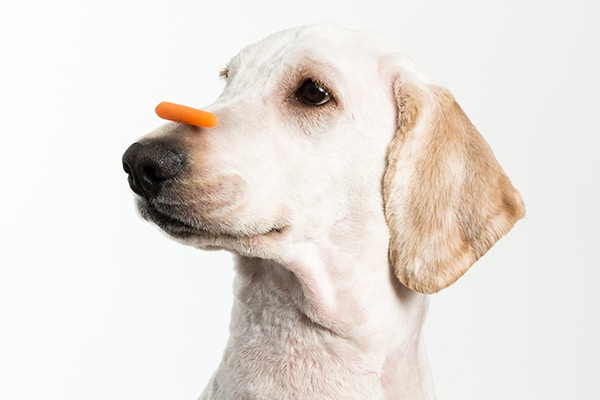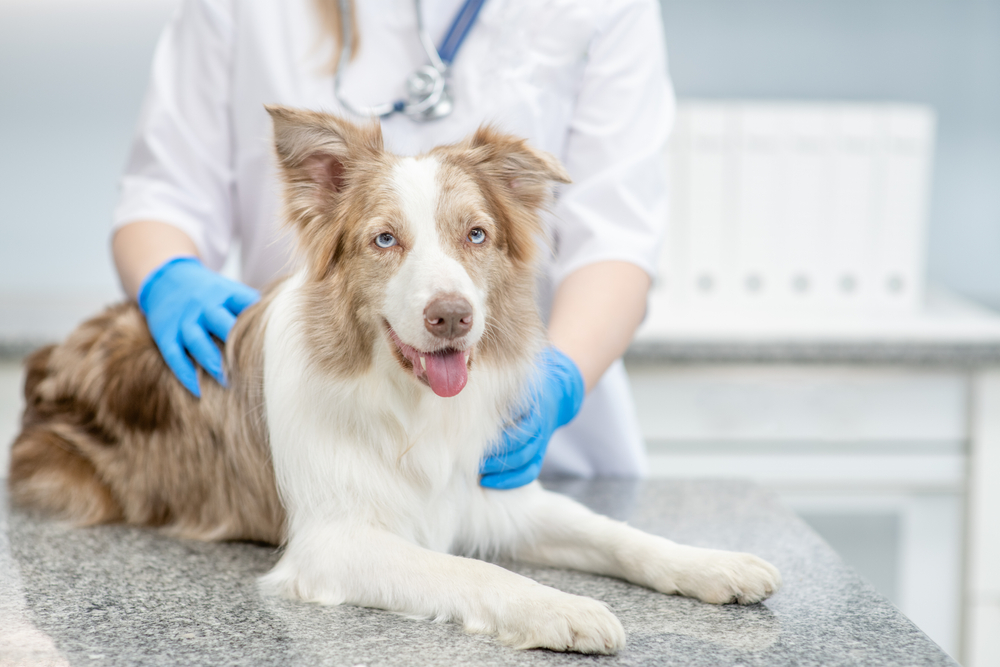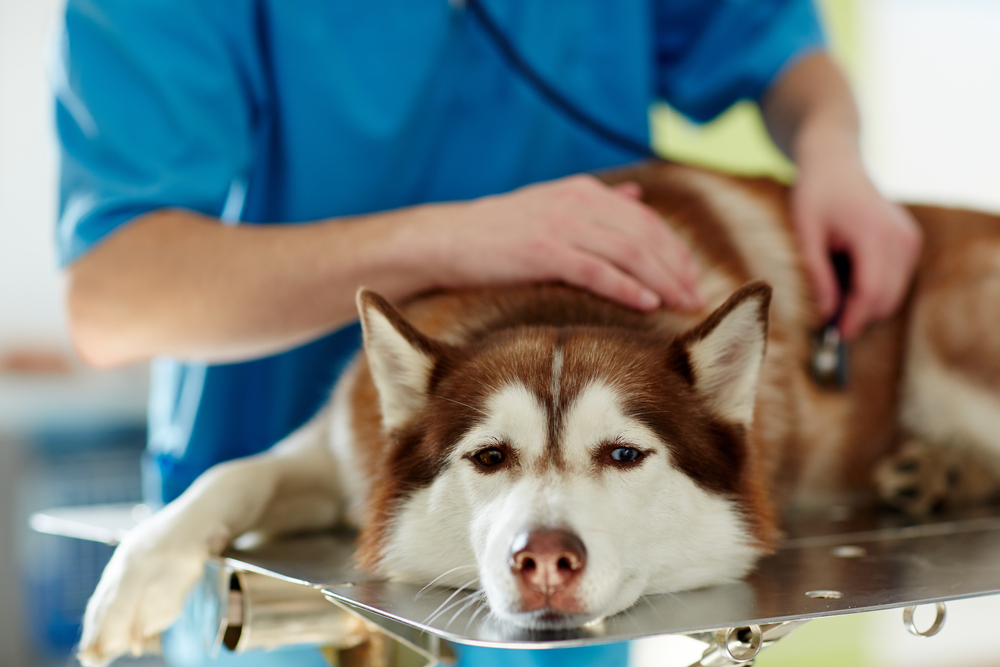While there’s no silver bullet for improving your dog’s eyesight, you can help support their eye health through their nutrition. Certain foods contain vitamins and minerals, such as vitamin A, lutein, and zinc, that specifically benefit eye health. Many dogs will also welcome the addition of tasty, natural, whole foods into their diet. Here are some foods that are known to help support eye health and are also safe for dogs to eat.

The 11 Foods That Improve Your Dog’s Eyesight
1. Carrots
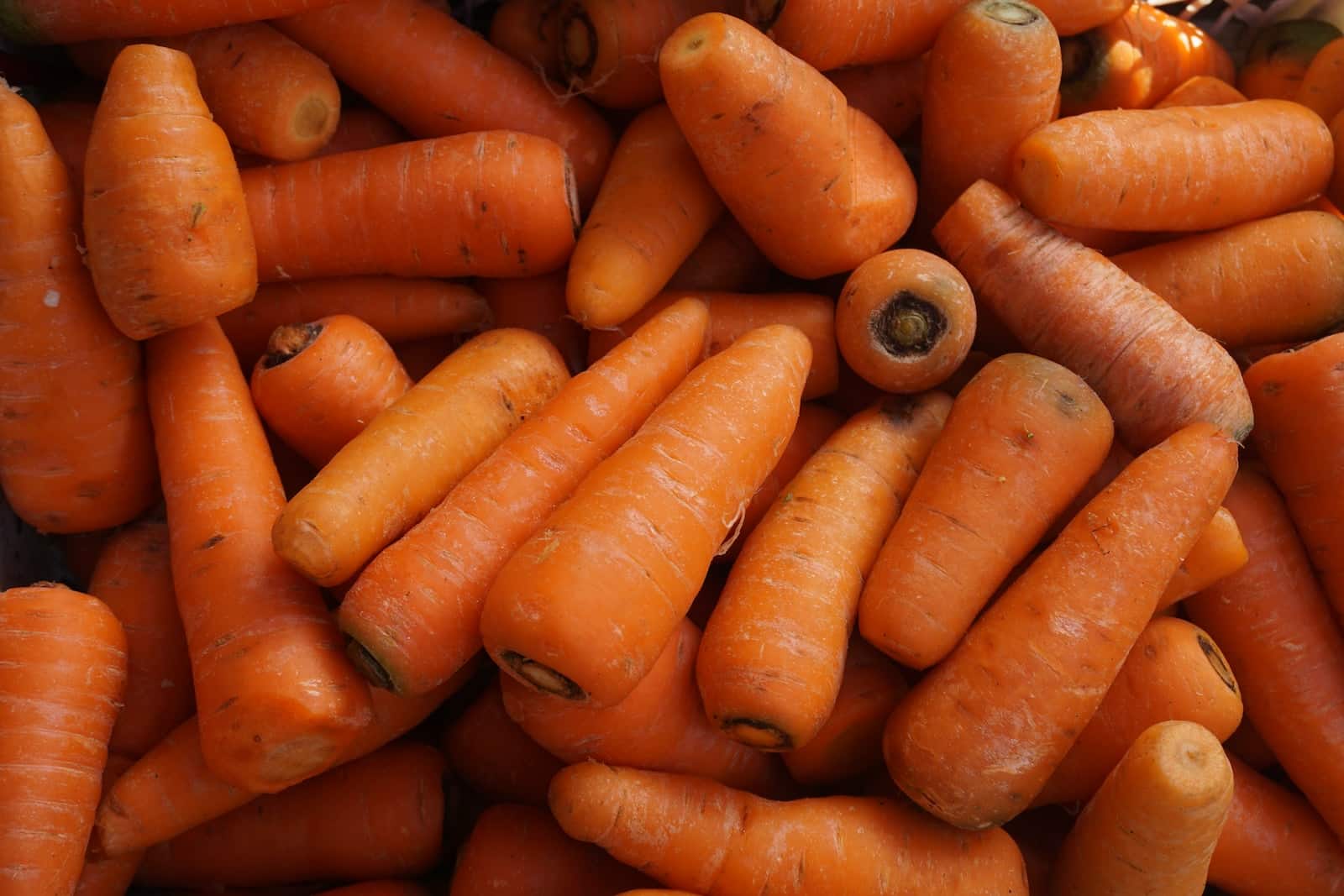
Carrots are fairly well known for benefiting eye health. They’re an excellent source of vitamin A, which helps our eyes see at night. Vitamin A also plays a role in maintaining healthy retinas and lowering the risk of developing age-related macular degeneration.
Another great thing about carrots is that most dogs enjoy eating them. You can feed your dog raw carrots or cook them for easier chewing and digestion. If you plan to cook carrots for your dog, make sure that they’re unseasoned and not prepared with any oil.
2. Eggs
Eggs are an excellent treat for dogs that prefer proteins over vegetables. Egg yolks contain many nutrients that benefit eye health, including vitamin A, lutein, zeaxanthin, and zinc. Lutein and zeaxanthin may lower the risk of age-related macular degeneration and cataracts, and zinc protects the retina.
When giving your dog eggs, make sure that they’re fully cooked. It’s also important to feed them in moderation, as eggs contain a high amount of cholesterol.
3. Red Bell Peppers
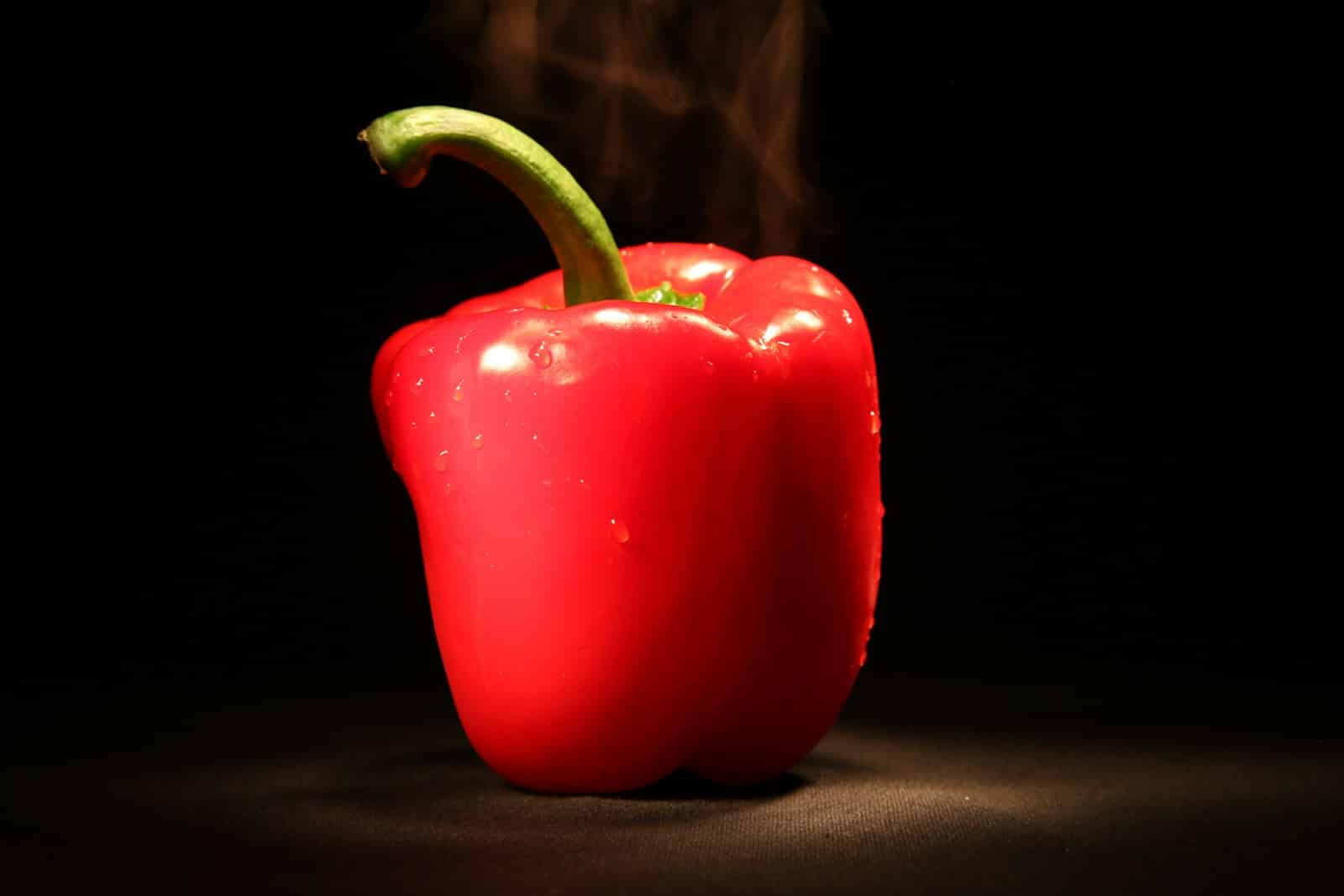
While any color of bell peppers is nutritious, red bell peppers are known to have a slight edge. They contain the highest amounts of vitamins and antioxidants and are a great source of vitamin A and lutein.
Your dog will probably appreciate eating peppers with the seeds and pith removed. These parts can taste bitter and unpleasant. It’s also safe to feed your dog both raw and cooked red bell peppers.
4. Sunflower Seeds
Sunflower seeds are considered excellent foods for promoting eye health because they’re a great source of zinc and vitamin E. Vitamin E benefits eye health by protecting the eyes from oxidative stress. It can also protect your eyes and skin from the sun’s UV rays.
While there are many benefits to consuming sunflower seeds, they’re high in fat and calories. So, make sure to feed them to your dog in moderation. If your dog is overweight, it may be best to refrain from giving them sunflower seeds as well as other kinds of seeds and nuts.
5. Dark Leafy Greens
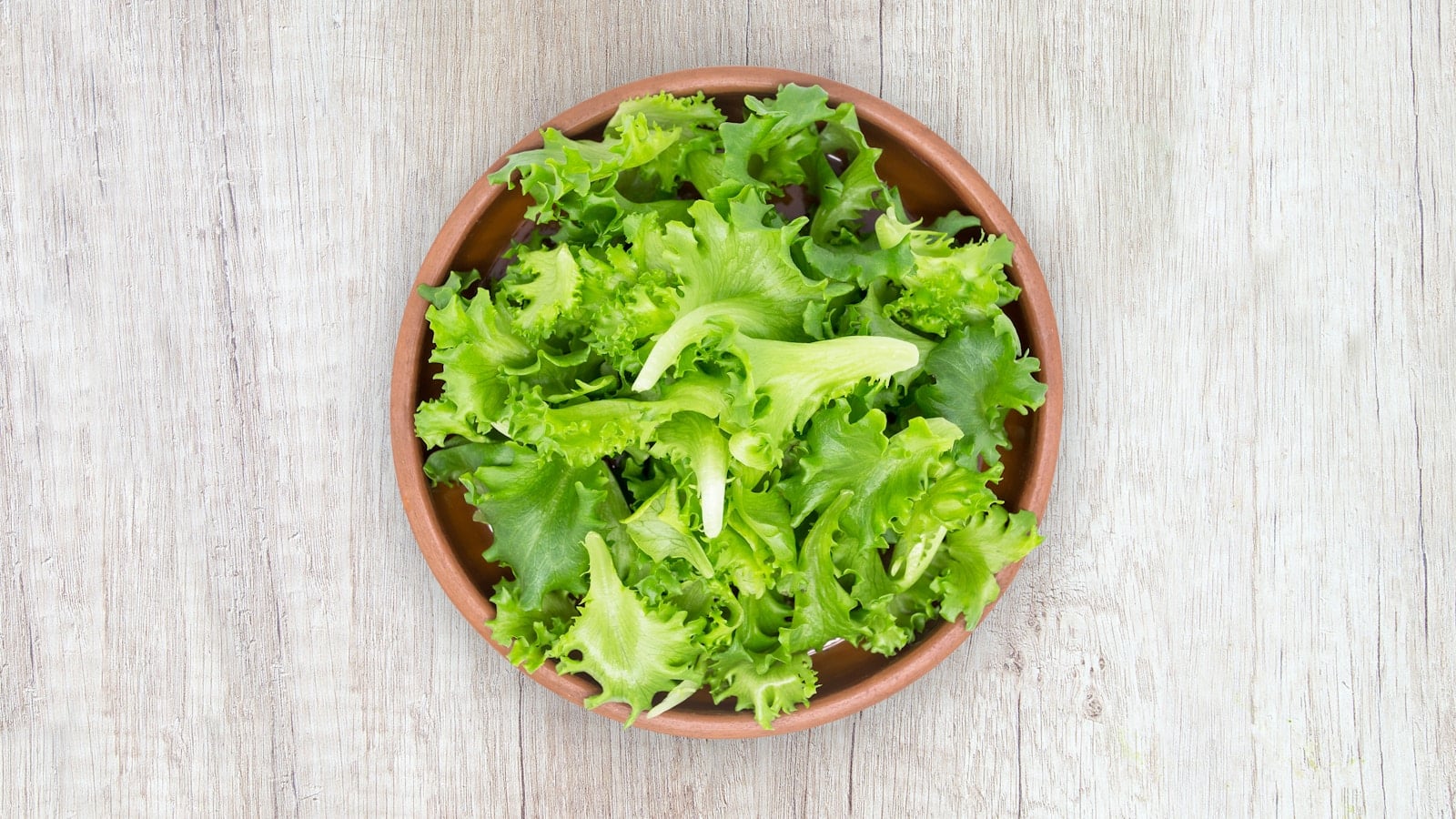
Dark leafy greens contain high levels of lutein and vitamin A, which can lower the risk of cataract formation. Some dark leafy greens that are safe for dogs to enjoy include spinach, kale, chard, and romaine lettuce.
When feeding your dog dark leafy greens, it’s often helpful to chop them up into smaller pieces or steam them to make them easier for dogs to eat. Some dogs may have difficulty digesting dark leafy greens because of their high fiber content. So, make sure to feed them in moderation.
6. Salmon and Fish Oil
Salmon and fish oil benefit eye health because they’re excellent sources of omega-3 fatty acids. Omega-3 fatty acids can help protect and preserve a dog’s vision and prevent age-related vision loss.
You can usually add fish oil supplements to your dog’s diet. If you want to give your dog salmon, make sure that it’s fully cooked and deboned. Raw salmon can put your dog at risk of getting food poisoning.
7. Sweet Potatoes

Sweet potatoes are usually a fan favorite amongst dogs, and they can benefit their eye health. This tasty snack is a good source of beta-carotene, which can be converted to vitamin A in the body. Beta-carotene can help a dog’s night vision and help them adjust to seeing in dark settings.
When feeding your dog sweet potatoes, make sure that they’re completely peeled and fully cooked. The skins can be difficult for dogs to digest, and raw sweet potatoes can upset their stomachs.
8. Beans and Legumes
Many types of beans and legumes are good sources of zinc. Chickpeas, black-eyed peas, kidney beans, and lentils are all safe to feed to your dog. Just keep in mind that some dogs with sensitive stomachs may not be able to digest beans and legumes very well and can feel gassy after eating them. So, it’s best to refrain from feeding them to your dog if they’re known for getting an upset stomach easily.
9. Pumpkin

Pumpkin is a great source of vitamin A, vitamin E, zinc, and lutein, which is an excellent combination of nutrients that benefit eye health. Pumpkin is also known to be gentle on the stomach and is a safe choice for many dogs with sensitive stomachs.
Dogs can also eat pumpkin seeds, which contain antioxidants and zinc. However, they’re higher in fat, so they should only be fed in small quantities.
10. Squash
Squash is a good food for protecting eye health because it contains vitamin A, vitamin C, zinc, and beta-carotene. Both winter squash and summer squash varieties are nutritious, with butternut and acorn squash being slightly more nutritious than the rest.
When preparing squash for your dog, make sure to remove the rind and seeds completely. They can be difficult to eat and digest, and the seeds can be a choking hazard.
11. Broccoli
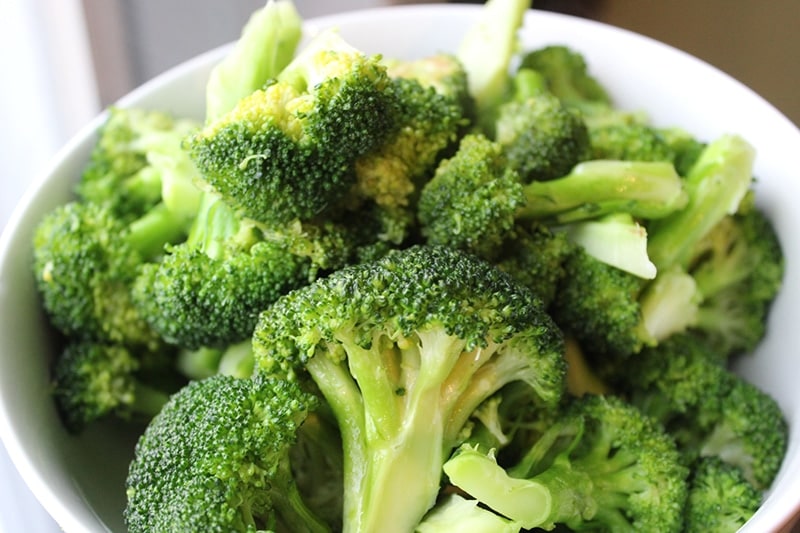
Broccoli is a highly nutritious food that’s packed with all sorts of beneficial vitamins and minerals. It’s a good source of vitamin A, vitamin C, and vitamin E. It also contains antioxidants that can protect your dog’s eyes from free radicals that threaten to break down retinal tissue.
You can give your dog plain raw or cooked broccoli. If your dog isn’t a fan of broccoli, you can try feeding them Brussels sprouts, as they have similar benefits to broccoli.

Conclusion
Simply feeding your dog certain foods won’t necessarily improve or fix all your dog’s eye issues. However, adding nutritious foods to your dog’s diet can support and benefit their eye health. Natural foods that are good sources of vitamin A, lutein, and zinc are known to help support healthy vision.
If you’re interested in adding certain foods to your dog’s daily diet, make sure to consult your veterinarian first. They can determine if these foods or supplements are safe and if adding new things to your dog’s diet will be an effective way to support their eye health.
Featured Image Credit: ©bzanchi | iStock / Getty Images Plus

